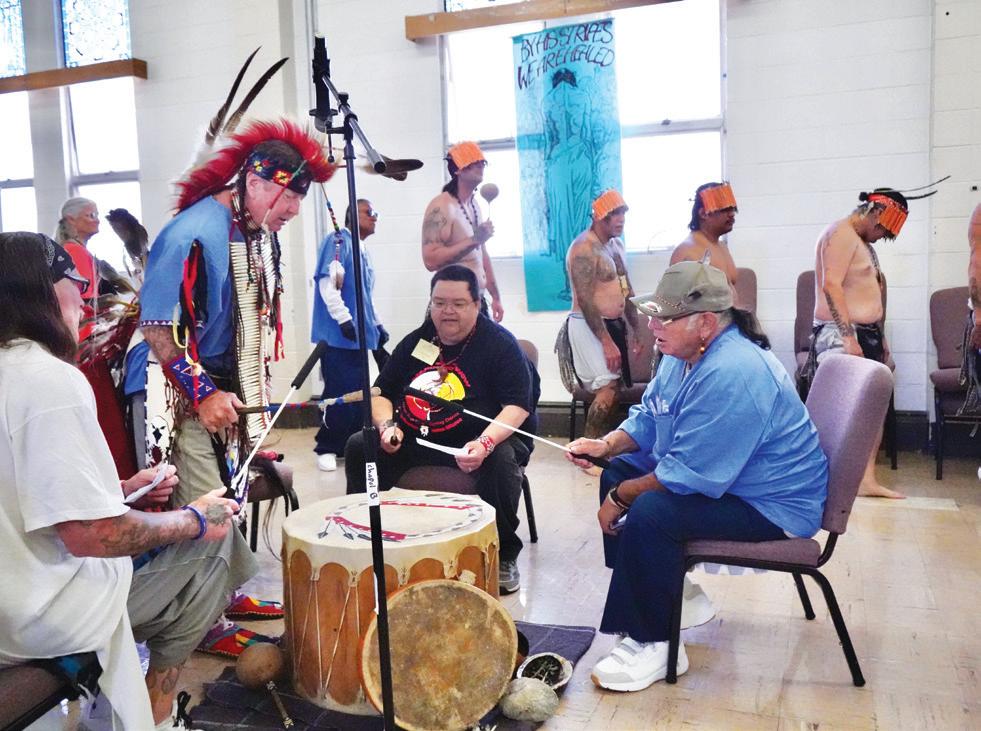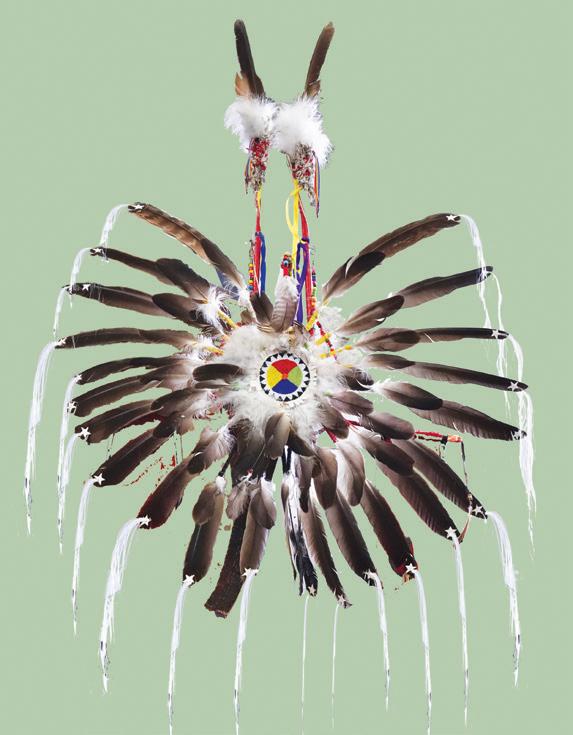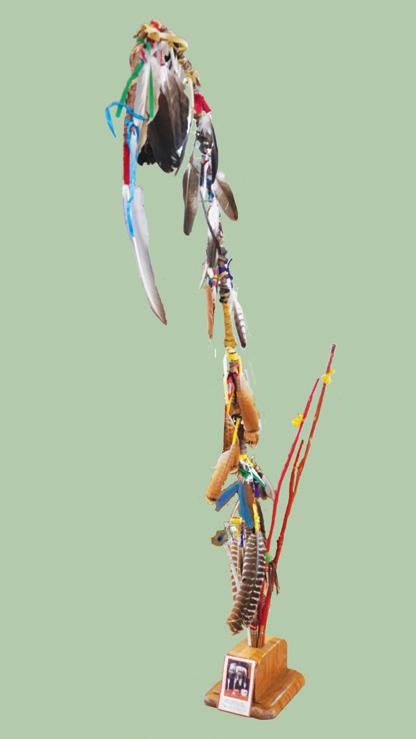
San Quentin’s incarcerated Native Americans gathered with family and guests to celebrate the riches of their culture in a traditional Powwow.
According to Gregory “White Eagle” Coates, a San Quentin Rehabilitation Center resident, the first Powwow inside San Quentin took place in 1978. As one of the eldest, he felt blessed to continue with this tradition.
Jerry “Running Deer” Ysla, representing the Achacjemen Nation, brought plenty of humor through his storytelling, a tradition dating back millennia. The laughter and shouts echoed inside San Quentin’s Chapel B.
Ron Self, San Quentin’s sponsor for Native American events and the creator of Veterans Healing Veterans, said, “This event is about history and culture and if you don’t write it down it’s forgotten. If it was not for the San Quentin administration, we wouldn’t be here this day. To be allowed to supervise you guys with a statewide clearance this is a trust. I am the only staff here among the incarcerated.”
Self, a former lifer who served 23 years of a 33-years-to-life sentence, said he felt grateful to the administration for trusting him.
Incarcerated persons conducted the traditional ceremonial dance around the drums while family and guests danced in circle to the drumbeats. Coates danced in full regalia, honoring all the ancestors who have fought to keep alive these traditions and way of life.


“It is really beautiful and powerful to see people do what they have done for thousands years, even within the confinement of prison,” said Elsie DuBray, who visited San Quentin for the first time. “Our culture and identity is not only for people who are on the outside, it is something that not even prison can take away.”
In North American indigenous cultures, the New Year has traditionally fallen at the end of January or the first part of February, based on the constellations and moon phases, according to a Manataka American Indian Council report.
The style and types of dances at a Powwow came from the traditions of the Great Plains. Among other incarcerated Native Americans, Maxx Robison, one of the group members who performed during the event, said he felt connected to his culture like never before. According to Robison, the Powwow gave his family a chance to see him do something positive.
Henry Frank, the communication director for Williams James Association, recalled the impact that a visit from a formerly incarcerated person had on him during one of the events at the chapel. He said he understood the importance of Powwows and that connecting with ancestral roots would give a person hope and purpose in life.
“Today, April 19, makes it 12 years since I paroled as a lifer with a 29-years-to-life sentence. I remember being in blue at the Powwow and what it meant to me. During my incarceration, when I attended Powwows I felt like I was being seen,” said Frank.